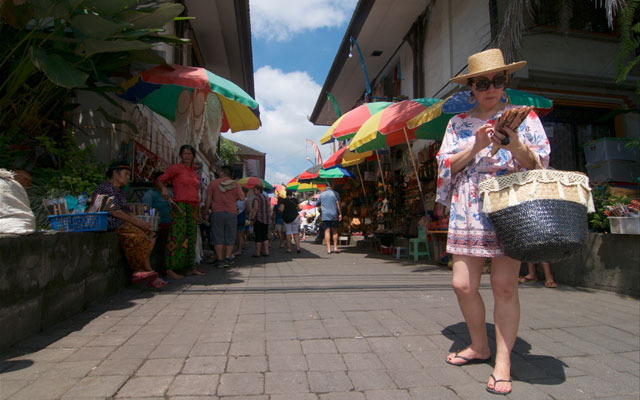Swelling interest among Chinese tourists in Bali could lead its initial recovery phase, with the popular Indonesian island expected to receive the first wave of Chinese travellers as soon as 4Q of this year, according to a C9 Hotelworks’ survey.
Out of the six million overseas tourists Bali hosted last year, China made up 19 per cent of the total.

Speaking at the Bali Tourism – The Way Back webinar last week, Bill Barnett, managing director of C9 Hotelworks, said that compared to Australia, which is also Bali’s top source market, he believed that China will come back earlier. “Over 50 per cent of the people (in China we surveyed) want to travel either late this year or early next year,” he added.
Barnett shared the results of the China Bali Travel Sentiment Survey 2020 that tracked Chinese travellers’ inclinations towards visiting Bali amid the Covid-19 pandemic.
“About 35 per cent of Chinese travellers think that Bali is a safer holiday destination than other places during the present situation,” revealed Barnett, who surveyed 1,041 respondents in first-tier cities within China in June.
Some 86 per cent of respondents said that they would like to travel to Bali late this year or early next year, with youths likely to lead post-Covid-19 travel to the island as 43 per cent of the respondents are aged 20 to 29.
Barnett, however, highlighted the importance of air connectivity to make that happen. He said: “Airlift is everything. You can’t stay (in Bali) if you can’t get there. The LCCs and regional airlines can act quicker than the large legacy carriers. This is one of the reasons we think China market can potentially return by Q4 this year or 1Q2021.”
Jasper Palmqvist, area director Asia Pacific of STR Global, however, thought otherwise. He said: “I hope I’m wrong, but I don’t think China will travel (to Bali) in 2020 given the fact that there’s no drive market in Bali, like in Bangkok, for example, where the domestic market will spur the reboot.”
“The best-case scenario is that demand could reach its previous high levels by 2022, but with all that new (hotel) supply, along with other contributing factors, performance-wise, it will take much longer.”
For Bambang Sugiono, director of marketing and overseas promotion of Bali-based RD Tours, the response from his business partners in China has stirred optimism.
He said: “The Chinese traveller’s desire to visit Bali remained high as they kept contacting me to ask for updated information about the Indonesian government’s policies. Once the travel corridor is opened, travellers (from China) will be able to fly directly to Bali. Now, we are waiting for that travel bubble (to materialise).”
He said that according to his business partners, Chinese travellers, especially those aged below 35 years, intended to visit Bali in October to celebrate China’s Independence Day, or January next year to celebrate Chinese New Year. Bambang said that he has launched promotions to recapture the China market.
In the meantime, the C9 Hotelworks’ survey also revealed that 24 per cent of those willing to fly to Bali are returning visitors, which is higher than repeat China business to other destinations like the Philippines, Thailand, and Vietnam, Barnett said.
Majority of Chinese respondents said that they would like to stay for three days in Bali, as compared to 2.5 days for the average length of stay for the China market in Thailand, he added.
To reach more Chinese travellers during the post-Covid 19 era, Vanessa Zhu, China director of Delivering Asia Communications, encouraged travel trade players in Bali to retool their marketing strategy by utilising Tik Tok (Douyin) to gain mindshare and Fliggy to offer and sell products.
According to her, the duo are part of “a new pattern” in China’s travel booking ecosystem that has developed during the Covid-19 period.
“Young FITs (in China) are hooked on Fliggy. They tend to jump on Fliggy to look at the products. Fliggy is more like a department store so it allows hotels to (sell) products… to customers,” she said.




















